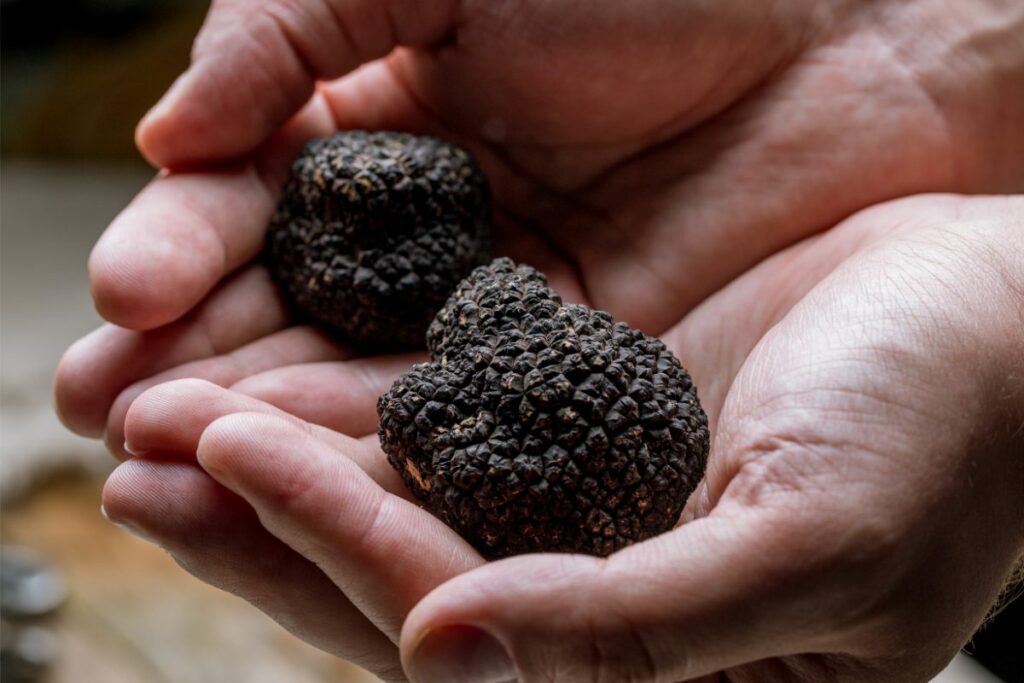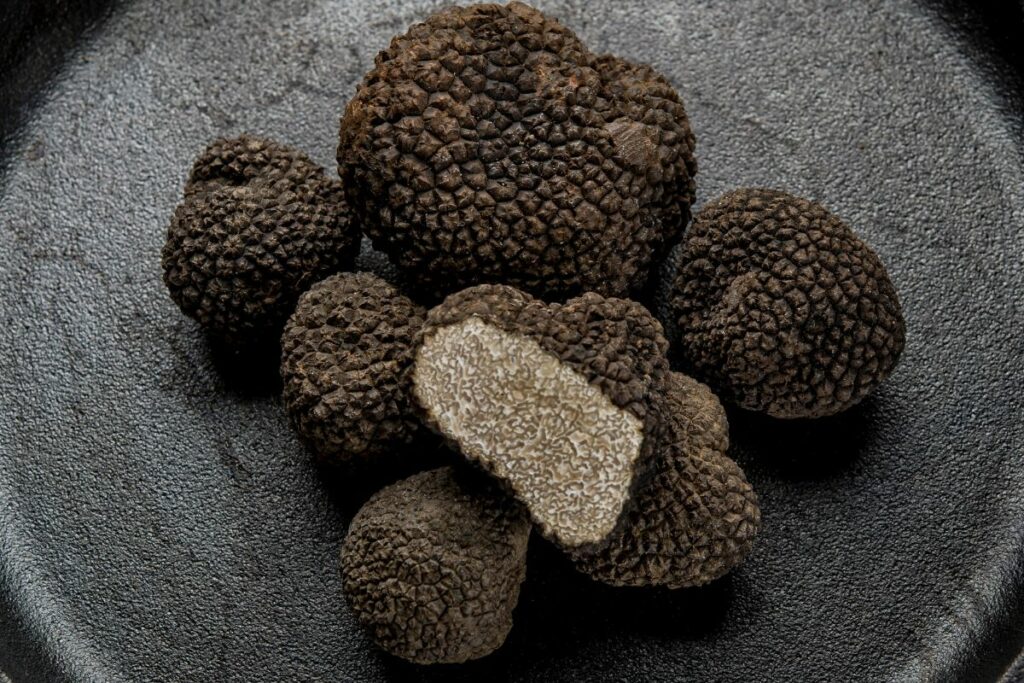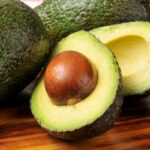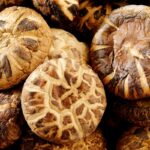Within the world of fine dining, it is certainly true that few foods have as much prestige as the truffle – offering those with the money, means, and the inclination everything they need to create a flavorful, pungent, and alluring dish.
But what exactly are truffles, and what do they taste like?

What Are Truffles?
Generally speaking, the term ‘truffle’ refers to the ‘fruiting body’ of the ascomycete fungus – a variety of subterranean fungus that are usually found near tree roots.
Highly prized as an element in fine dining, truffles were long considered the ‘diamond of the kitchen’ by the French gastronome Jean Anthelme Brillat-Savarin.
For centuries, truffles have widely been used within French and Italian cuisine, and still hold a prestigious place within haute cuisine.
What Do Truffles Taste Like?
Describing the actual taste and flavor of truffles is no easy task – and perhaps the easiest definition would be ‘complex’.
Generally earthy, nutty, or ‘umami’ in texture, the truffle has also been known to taste vaguely floral in some cases. However, this generally depends on the variety of truffle used, and the methods used during its preparation.
Black Vs White Truffles
The difference between the taste of black and white truffles is distinct, and each variety adds something different to cooking.
While there are more than 200 varieties of truffles, the majority fall into these two categories, and this is used to determine their flavor, their smell, their appearance, and their texture.
Black truffles are generally the cheaper option, and as such are considered lower quality and more accessible. However, the price of this is that they are usually less aromatic, which can be a negative thing for chefs.
However, one benefit of the black truffle is that they usually do better at resisting heat, which makes them a great addition for sauces and other dish components that require long simmering times.
When it comes to white truffles, these are notably more expensive, and as such are generally reserved for the finest of fine dining – usually in the best restaurants in the world.
White truffles are more pungent in smell and flavor, and are far more aromatic than their black counterparts – not to mention being far more rare, which means they are often used sparingly in cooking, where they are usually lightly grated over the top of other dishes.
Why Are Truffles So Expensive?

Generally speaking, the high price tag associated with truffles is down to a few different reasons.
Limited Global Distribution
While black truffles are the most common of the varieties, they are still not massively dispersed around the world, and only really grow in certain environments.
This means that people do not generally buy them in bulk, as they do with other forms of mushrooms or fungi. They are also not grown en masse, meaning that only natural locations are used – thus making them more rare and exclusive.
This makes them a rare commodity, which as we all know, instantly ups the price tag associated with.
Labor Intensive
As they are not grown artificially, and the retrieval process still relies on using pigs and dogs to locate them, this makes the process of actually finding them more labor intensive than other fungi and vegetable farming methods.
This means that a higher price tag is attached to them to compensate those who do the searching and cultivating.
Association With Haute Cuisine
Of course, something else that usually governs the price of things, is their association with fine dining and haute cuisine.
If no one wanted truffles for their award winning restaurants, then their price would undoubtedly drop exponentially over night.
However, seeing as some of the most celebrated chefs laud truffles for their goodness and prowess, they remain a highly sought after item.
Are Truffles Healthy?
In addition to their unique taste, smell, and appearance, truffles are also nutritious and healthy. However, due to the fact that they are so exclusive, and used in such small amounts, any health benefits that are associated with them are generally not applicable to human beings.
However, the various creatures that naturally feast on them – such as wild pigs, dogs, insects, and other creatures – are all capable of reaping the benefits of this strange and elusive fungus.
What Are Their Supposed Benefits?
When it comes to truffles, some supposed health benefits include:
- High in antioxidants
- Cholesterol reducing
- Antibacterial properties
- Anti-fungicidal properties
- Good for immune function
- Good for bolstering cognitive function
- Lowers cancer risk
- Improves heart health
- Contains probiotics that are good for gut health
As you can see, truffles hold numerous health benefits for humans. However, as mentioned above, their scarcity, and their exclusivity, means that few reap the associated natural benefits.
Final Thoughts
And there we have it, everything you need to know about truffles, what they actually are, and where they can be found.
It is certainly true that, within the world of fine dining, truffles are held in the highest regard – offering a whole universe of potential for cooking and food. However, despite their prestige, there are many people who still do not know what they are.
So if you are interested in trying the finer things in life, then why not give truffles a try?
Frequently Asked Questions
Now that we know a little more about truffles, and what exactly they are, it is now time to answer some frequently asked questions that you might be interested in.
This depends on the kind of truffle you use. For black truffles, these should be cleaned, and can then be eaten raw or lightly cooked. However, for white truffles, these should just be cooked and eaten raw.
Truffles are renowned for being one of the most expensive products on the market – something that explains why they are few and far between in most conventional restaurants.
- How To Reheat A Cheesesteak - November 5, 2023
- What Are Three Must Have Kitchen Knives? - September 22, 2023
- How To Protect Edges Of Pie Crust - June 15, 2023








